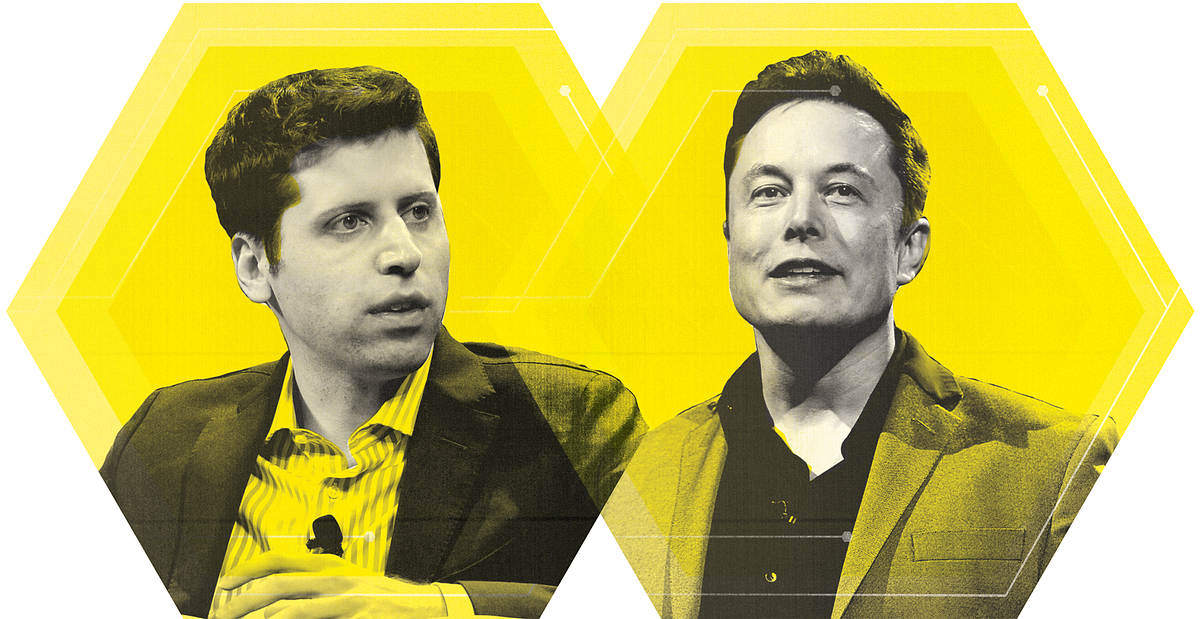How Elon Musk and Y Combinator Plan to Stop Computers From Taking Over
They’re funding a new organization, OpenAI, to pursue the most advanced forms of artificial intelligence — and give the results to the public
Asif the field of AI wasn’t competitive enough — with giants like Google, Apple, Facebook, Microsoft and even car companies like Toyota scrambling to hire researchers — there’s now a new entry, with a twist. It’s a non-profit venture called OpenAI, announced today, that vows to make its results public and its patents royalty-free, all to ensure that the scary prospect of computers surpassing human intelligence may not be the dystopia that some people fear. Funding comes from a group of tech luminaries including Elon Musk, Reid Hoffman, Peter Thiel, Jessica Livingston and Amazon Web Services. They have collectively pledged more than a billion dollars to be paid over a long time period. The co-chairs are Musk and Sam Altman, the CEO of Y Combinator, whose research group is also a funder. (As is Altman himself.)
Musk, a well-known critic of AI, isn’t a surprise. But Y Combinator? Yep. That’s the tech accelerator that started 10 years ago as a summer project that funded six startup companies by paying founders “ramen wages” and giving them gourmet advice so they could quickly ramp up their businesses. Since then, YC has helped launch almost 1,000 companies, including Dropbox, Airbnb, and Stripe, and has recently started a research division. For the past two years, it’s been led by Altman, whose company Loopt was in the initial class of 2005, and sold in 2012 for $43.4 million. Though YC and Altman are funders, and Altman is co-chair, OpenAI is a separate, independent venture.
Essentially, OpenAI is a research lab meant to counteract large corporations who may gain too much power by owning super-intelligence systems devoted to profits, as well as governments which may use AI to gain power and even oppress their citizenry. It may sound quixotic, but the team has already scored some marquee hires, including former Stripe CTO Greg Brockman (who will be OpenAI’s CTO) and world-class researcher Ilya Sutskever, who was formerly at Google and was one of the famed group of young scientists studying under neural net pioneer Geoff Hinton in Toronto. He’ll be OpenAI’s research director. The rest of the lineup includes top young talent whose resumes include major academic groups, Facebook AI and DeepMind, the AI company Google snapped up in 2014. There is also a stellar board of advisors including Alan Kay, a pioneering computer scientist.
OpenAI’s leaders spoke to me about the project and its aspirations. The interviews were conducted in two parts, first with Altman and then another session with Altman, Musk, and Brockman. I combined the interviews and edited for space and clarity.
How did this come about?
Sam Altman: We launched YC Research about a month and a half ago, but I had been thinking about AI for a long time and so had Elon. If you think about the things that are most important to the future of the world, I think good AI is probably one of the highest things on that list. So we are creating OpenAI. The organization is trying to develop a human positive AI. And because it’s a non-profit, it will be freely owned by the world.
Elon Musk: As you know, I’ve had some concerns about AI for some time. And I’ve had many conversations with Sam and with Reid [Hoffman], Peter Thiel, and others. And we were just thinking, “Is there some way to insure, or increase, the probability that AI would develop in a beneficial way?” And as a result of a number of conversations, we came to the conclusion that having a 501c3, a non-profit, with no obligation to maximize profitability, would probably be a good thing to do. And also we’re going to be very focused on safety.
And then philosophically there’s an important element here: we want AI to be widespread. There’s two schools of thought — do you want many AIs, or a small number of AIs? We think probably many is good. And to the degree that you can tie it to an extension of individual human will, that is also good.
project site: https://openai.com/blog/introducing-openai/

Comments
I saw this yesterday, still don't know what to think about it. I'm a huge fan of Elon Musk and am curious to see where this goes, but I feel like the announcement of direction/mission statement is just a flashy storefront meant to dazzle. Looking forward to the first in-depth Q&A.